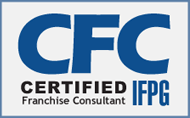IMPORTANT FACTS, QUESTIONS AND ANSWERS
ASK YOUR QUESTIONS HERE
Learn More About Franchising
Enjoy our resources just for you!

5 inspirational success stories to motivate aspiring franchisees Thomas Edison is credited with coining the phrase, “Genius is 1 percent inspiration and 99 percent perspiration.” Something similar could be said for success as a franchisee — although we don’t want to completely discount the importance of inspiration. In fact, learning from other franchisees and hearing their stories is of great importance. “When investing in a franchise business, nothing is more important than talking with franchisees about their experience,” says Eric Stites, CEO and founder of Franchise Review, a leading market research firm that specializes in franchisee satisfaction and performance. “The franchisees within a specific franchise brand are essentially going to be your business partners and mentors. What has their experience been? What challenges have they faced? What type of culture does the company have? These are all critical questions to understand before investing in any franchise business opportunity.” Learning from other franchisees gives you the knowledge and the motivation to succeed. This issue, we take a look at five franchise success stories that can serve as inspiration before you put in all the hard work of opening and running your own franchise.

First of all, think about your personality and talents, and ask yourself questions such as “Why should I want a franchise ?”, “Will I be a good manager? “Am I patient?” To make this a more natural process, you can write down your franchise objectives on a legal pad to help you determine which franchise category to buy into, so it can help you connect the dots and have a more precise goal in your head. To get started on the legal and bureaucratic paperwork after you decide, you can seek the help of a franchise lawyer to clarify the law and legal aspects of the process and who can register you with your state or local franchise regulator. Hiring a franchise lawyer is secure and will help you more than you can imagine. What is a franchisor? The owner of the brand or franchise that you will be participating in. What is a franchisee? The person who opens one or several new locations of the franchise on behalf of the franchisor. As a franchisor starting a new franchise , you get many advantages to just expanding on your own; it takes less capital, less risk, and takes up less of your time as well. You gain partners when franchising, but you are still the owner of the brand and parent company. And as a franchisee (who buys the franchise) you get to join in a successful business without the hassle of starting from scratch and creating processes and branding by yourself. Ponder on all the benefits of owning a franchise and organize yourself to make it happen, so you won’t have to struggle by not knowing the basics of it. Next are all the elements to consider when buying a franchise:

When it comes to financing a franchise, you have various options—drawing assets from your retirement account, SBA loans, financing through the franchisor, home equity loans or second mortgages, borrowing from family or friends, or utilizing your own resources. If you decide to take out a loan or seek outside finance, there are several actions you may take to improve your chances of success. When selecting how to finance your franchise, consider the following points: Find out how much financing will cost in total. This covers interest rates, financing fees, the first six months of operational costs, and other elements. Determine what personal assets you are willing to put at risk as collateral. Make sure you understand the default terms and conditions for the financing alternatives you're considering. Understand how the total and monthly payback expenses affect your present and anticipated cash flow. Understand the debt's amortization plan, including how long you will have to pay it back and how your monthly payments or interest rates will fluctuate over time. To become the ideal borrower, you must concentrate on the five C's: capital, credit, capacity, character, and collateral. This equates to available funds for a down payment, a solid credit history, adequate cash flow to meet debt repayment, past expertise in the business in which your franchise operates, and personal property to guarantee your loan. While not possessing all of these will not exclude you from receiving finance, the more boxes you check for your prospective lender, the more likely you will acquire the necessary funds. Whatever method you choose to fund your franchise, there are five things you can do to boost your chances of approval. Know everything there is to know about the franchise you want to acquire. Do your homework and be prepared. With your lawyer or accountant, go over the franchisor's Franchise Disclosure Document, or FDD. The FDD is a goldmine of knowledge and the most significant document you'll read during the discovery phase. Develop a business plan. Always bear in mind that the business may not scale up as rapidly as you would want, which implies that your prospective revenue stream may take longer to build than you anticipated. Improve your credit score. A strong credit score is one of numerous elements that will determine your interest rate, payment terms, and loan amount. Prepare your collateral funds. Most will want a 10 to 20% down payment to demonstrate that you have a financial stake in the financial success of your potential franchise. Are you interested in learning more about financing your franchise opportunity? Please schedule a call...
"“If you really want to do something, you'll find a way. If you don't, you'll find an excuse.”
-Jim Rohn




